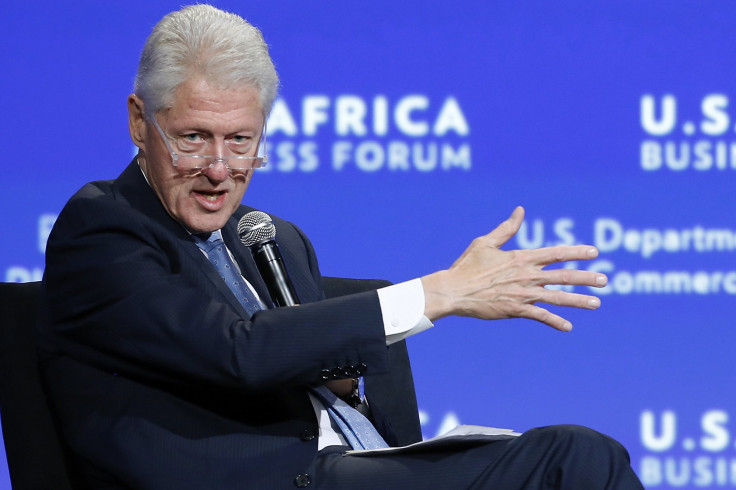Scotland Independence: Bill Clinton, Mariano Rajoy Slam 'Yes' Campaign

On the eve of Scotland's historic independence referendum, former U.S. President Bill Clinton and Spanish Prime Minister Mariano Rajoy are wading into the emotion-filled debate with harsh words for the "Yes" campaign. Rajoy said Wednesday that an independent Scotland would have to re-apply to join the European Union, a process that could take up to eight years. Clinton said a "Yes" vote would bring too many uncertainties over Scotland's future.
Clinton and Rajoy are the latest celebrities and world leaders to weigh in on Scotland's referendum vote Thursday. Italy’s former prime minister, Enrico Letta, came out against the "Yes" campaign this week, saying it could trigger a new world war. British and Scottish celebrities have also taken public stances on the debate in recent days.
Clinton said in a statement through the pro-union Better Together campaign that the independence proposal carried significant financial risks and could weaken the Scottish economy. "Unity with maximum self-determination sends a powerful message to a world torn by identity conflicts that it is possible to respect our differences while living and working together. This is the great challenge of our time. The Scots can show us how to meet it," Clinton said.
Rajoy told the Spanish parliament Wednesday that a "Yes" vote would “torpedo “ the “vulnerabilities of the European Union,” according to the Irish Times. Rajoy said the EU was not created “to break up states, but to integrate them."
Letta said comparing the assassination of Archduke Franz Ferdinand in Sarajevo with “the possible consequences of Scottish independence as a result of Thursday’s referendum may not be too far-fetched.” Letta, whose comments were made public in a letter to the daily newspaper Corriere della Sera, said a "Yes" vote could result in Britain leaving the EU, leaving the international union “smaller and poorer.”
Bill Clinton backs NO saying we can inspire the world with "a powerful message of both identity & inclusion" #indyref pic.twitter.com/kO3Wvskp3S
— Better Together (@UK_Together) September 16, 2014© Copyright IBTimes 2025. All rights reserved.




















